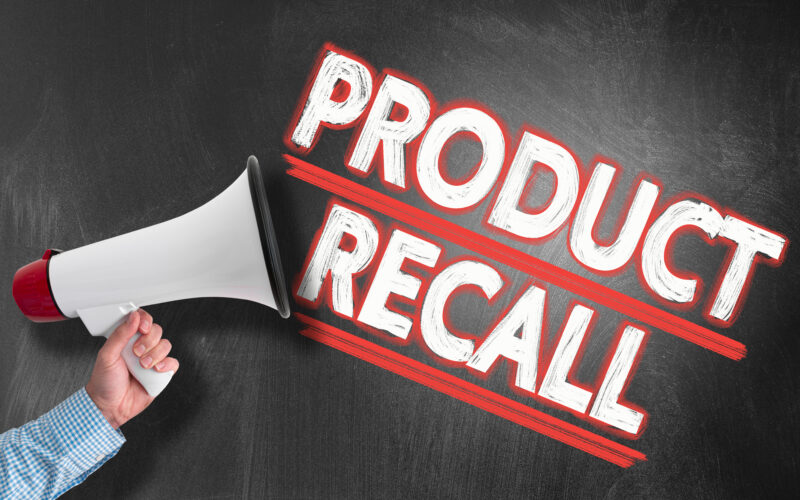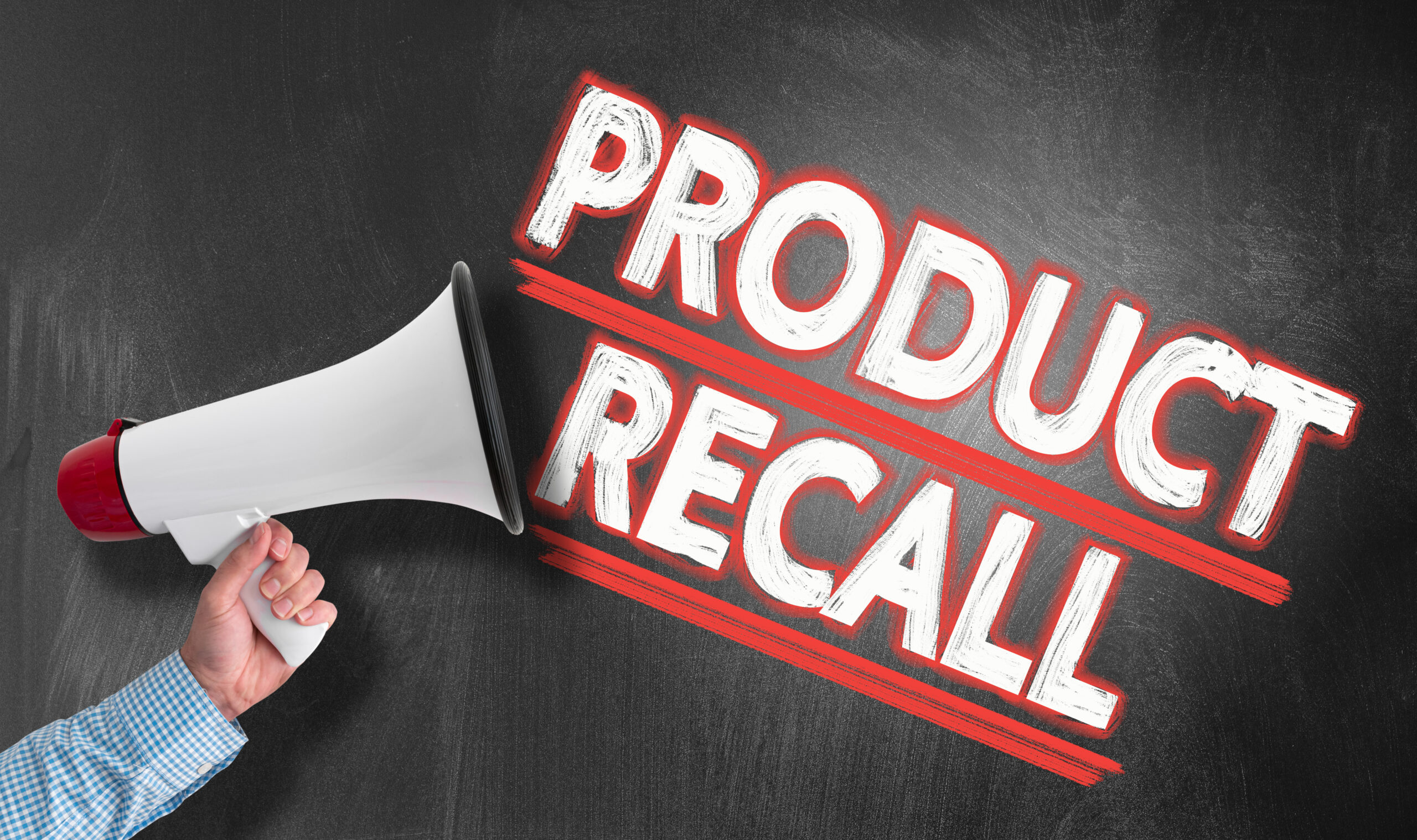Clearwater, FL — CPSC: Anker Power Banks Recalled for Fire Hazard
22Sep
Clearwater, FL (September 22nd, 2025) – Anker, a well-known electronics manufacturer, has issued a sweeping recall of nearly half a million portable power banks. The U.S. Consumer Product Safety Commission (CPSC) announced that certain Anker models are prone to overheating, posing serious risks of fire, burns, and even explosions. For Floridians who rely on power banks for convenience during travel, storm preparedness, or daily use, the recall is a reminder of just how dangerous defective products can be.

If you or a loved one has suffered burns or other injuries linked to an Anker power bank, you may have legal options. The Clearwater product liability lawyers at Light & Wyatt Law Group can help you understand your rights and pursue compensation. Call us today at 727-499-9900 for a free initial consultation.
Table of Contents
What Sparked the Anker Power Bank Recall
The recall was triggered by dozens of consumer complaints. Reports describe units growing dangerously hot, melting, and in some cases igniting. At least four people have already suffered burn injuries linked to these devices, and one consumer reported property damage after a fire caused by an overheating battery.
At the center of the issue are the lithium-ion cells inside the power banks. These batteries are common in consumer electronics because they are lightweight and powerful. But they are also highly sensitive. If manufacturing defects occur or if the device is pushed beyond safe operating limits, the battery may enter what is known as “thermal runaway.” In this state, the cells can no longer control heat generation, triggering smoke, flames, or explosions.
In a state like Florida, where high temperatures are the norm and electronics are often stored in hot cars or outdoor environments, these risks become even more significant.
Which Anker Models Are Impacted
The recall affects five specific Anker power bank models: A1257, A1647, A1652, A1681, and A1689. These models were sold under the Anker brand name, which appears prominently on the front of each unit. Serial numbers and model identifiers are printed on the back or side, giving consumers a way to check whether their device is included in the recall.
Between August 2023 and June 2025, the recalled devices were sold widely across Florida and the rest of the country. Shoppers could find them on the shelves of Target and Best Buy, order them from online giants like Amazon and Walmart, or purchase them directly through Anker’s website and other online marketplaces. Prices typically ranged between $30 and $50, making them an accessible and popular choice.
Because the products were distributed through so many major retailers, there is a high chance that thousands of Florida households own one of the recalled models.
The Dangers of Defective Power Banks
Portable chargers are designed to make life easier, keeping phones, tablets, and other devices powered on the go. But when they fail, the results can be catastrophic. A fire that starts in a backpack or car console can spread quickly, especially in a confined space. Burns from overheated devices may require medical treatment, and property damage can extend well beyond the immediate area where the device was charging.
In Florida, the risks may be heightened by the climate. Leaving electronics in a hot vehicle or carrying them during long hours outdoors can put additional strain on already defective batteries. For families who rely on portable chargers during hurricane season, when power outages are common, the thought of a backup device turning into a fire hazard is especially concerning.
Florida Product Liability Law and Consumer Rights
When defective products cause injuries or property damage, Florida law provides avenues for recovery. Manufacturers, distributors, and retailers can all be held responsible under product liability rules.
In cases like the Anker recall, liability may stem from a design defect, where the product was inherently unsafe; a manufacturing defect, where certain units failed during production; or a failure to provide adequate warnings. Consumers do not need to prove negligence in every instance—if the product is found to be unreasonably dangerous, strict liability may apply.
For Florida residents injured by a defective power bank, compensation may be available for medical bills, lost income, damage to personal property, and pain and suffering. Even minor burns can result in medical costs and recovery time, while house fires caused by defective electronics may leave families facing major expenses.
How Florida Consumers Can Protect Themselves
Although recalls are meant to protect the public, they often come after injuries have already occurred. Staying proactive is important. Florida consumers can take steps to reduce risks while also protecting their rights.
One key precaution is to monitor recall announcements from the CPSC, which frequently posts updates about unsafe products ranging from electronics to children’s toys. Checking devices for unusual signs such as swelling, strange odors, or overheating can also help identify problems before they escalate.
When it comes to disposing of recalled items, Floridians should use their county’s hazardous waste programs. Tossing batteries in the trash may not only violate local waste rules but can also create fire hazards for sanitation workers and waste facilities.
Finally, keeping receipts, packaging, and product information can be invaluable if legal action becomes necessary. Documenting injuries or property damage linked to a defective device strengthens any potential claim under Florida’s product liability laws.
Frequently Asked Questions
How do I know if my Anker power bank is recalled?
Check the model number printed on the back or side. If it matches A1257, A1647, A1652, A1681, or A1689, your device is included in the recall.
Can I still file a claim if I was injured before the recall was announced?
Yes. The recall does not erase liability. Florida law allows injured consumers to pursue claims for damages caused by defective products.
What should I do if my device already caused property damage?
Document the incident carefully. Take photographs, keep receipts for repairs or replacements, and consider consulting with a Florida product liability attorney to discuss your options.
Where can I dispose of recalled batteries in Clearwater?
Pinellas County operates hazardous waste collection sites where residents can drop off lithium-ion batteries safely. Local retailers may also participate in recycling programs.
Protecting Florida Consumers After the Anker Power Bank Recall
The Anker power bank recall highlights how even small consumer electronics can present big dangers when defects are involved. With nearly 500,000 units affected, Florida residents are urged to check their devices, stop using recalled models, and seek refunds or replacements through the recall program. Safe disposal through local hazardous waste facilities is essential to prevent further risks.
For those who have suffered burns, property damage, or other losses tied to defective Anker products, Florida product liability law offers a pathway to hold companies accountable. While recalls aim to protect consumers, the responsibility for ensuring safety ultimately lies with manufacturers and retailers. By taking action, Floridians can protect their families, their property, and their rights.
Our defective products lawyers at Light & Wyatt Law Group have more than 30 years of experience representing Floridians harmed by the negligence of others. If you’ve been injured by a defective product, such as the recalled Anker power banks, contact our law group today. Call 727-499-9900 to schedule a free consultation.
